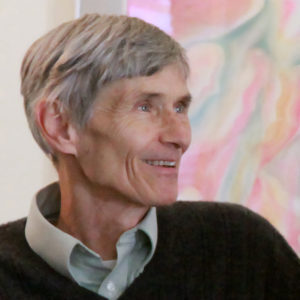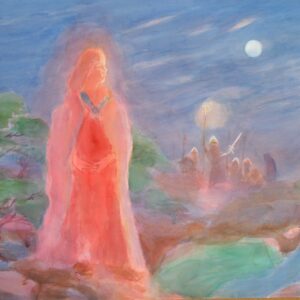Darwin vs. God
By Dennis Klocek 3 min read
Does evolution necessarily exclude intelligent design?
In the legal realm, a crime that is premeditated carries a more severe penalty than a crime that is committed in the heat of passion. From one perspective we could say that a crime is a crime. But the law recognizes that when acting in a moment of passion a human being is seldom in his or her “right mind”. In this, there is a distinction made between a consciousness dominated by the body represented by the influence of passion and the state of mind of a human being who is capable of consciously accessing the intent of their own will.
This is to say that human action driven by instinctual urges employs the level of consciousness of an animal. Ironically this is the fundamental level of human consciousness assigned to humanity by modern science following the lead of Darwin. In that view, the human being is a slightly more aware animal. This kind of thinking supports the biological imperative where biology determines the evolution of consciousness through chance encounters.
In contrast to this, Intelligent Design supports the view that we are all children of God, made in his image and that the intelligence of the Creator is evident everywhere in the design of Nature. This view is a reaction to the ideas of Darwinism that explain human beings as the descendants of maverick amoebas. Intelligent design rejects that there has been a gradual evolution from lower to higher forms that are the result of chance interactions. To the adherents of this view, the incredibly articulated relationships of the natural world are far beyond the realm of chance. All of nature is presided over by a dominating intelligence that guides all events according to a Divine Plan.
Both of these views, however, deny a third option. This option is aptly expressed in two aphorisms from the poet Goethe. The first addresses the idea that a creative intelligence would not allow for the created forms to evolve in freedom. To this tenet of the Intelligent Design camp Goethe would ask. “What would a God be who only pushed from the outside?” In other words, is their room in the creation for a Creator to also allow the freedom of the created beings to learn to guide their own development?
In response to the more cosmologically bereft aspects of Darwinian thinking Goethe would counsel, “ God gives us the nuts but he doesn’t crack them for us.” In other words, there is intelligence in the design of the creation that doesn’t necessarily arise from random interactions and it is up to us to ponder the depth of these mysteries with due respect to their cosmological importance. Human destiny involves more than chance relationships based on struggle.
What the proponents of the randomness of natural selection and the dictates of Intelligent Design both overlook are that there can be a great intelligence that is so permeated by love that it can allow freedom of will for the created beings. This view can bring inspiration to humanity, now deeply embedded in the cosmological drama of overcoming the biological imperative through free acts of intent. This third view sees the human being as a riddle in the creation that is still unfolding its drama. This is accomplished, as our laws state, by being responsible for the intent of one’s acts. Since this principle is found in the most serious judicial considerations, it seems reasonable that taken to its philosophical end it points to a potential solution for the current polarized debate between science and religion. A debate that fails to address the cosmological significance of the gift of free will as an intrinsic part of the evolutionary task of self-development, a gift bestowed by but not limited by extra-human sources.

Dennis Klocek
Dennis Klocek, MFA, is co-founder of the Coros Institute, an internationally renowned lecturer, and teacher. He is the author of nine books, including the newly released Colors of the Soul; Esoteric Physiology and also Sacred Agriculture: The Alchemy of Biodynamics. He regularly shares his alchemical, spiritual, and scientific insights at soilsoulandspirit.com.
Similar Writings
Wednesday of Holy Week
In this session, I will combine Wednesday and Thursday. We will focus on work and prayer. Work is in the lower right. That is the upward pointing triangle with the lightning bolts. Prayer is in the Star of David on the trunk of the tree with the starry realm around it and the zodiac symbols…
